If you have ever planned a WordCamp or any other similar event, you know that it’s a lot of hard work – speakers wrangling, volunteers, venue, food, drinks, video, photos and everything else. And now that it’s all over, let’s talk about WordCamp Russia.
Planning
The planning phase began early in March, when we confirmed our venue, which seemed like a lot of time to plan a WordCamp. It was enough, though if somebody gave me a couple extra days, I wouldn’t have said “no.”
If you’ve ever worked with a Russian company, you probably dealt with some bureaucracy, which is inevitable, especially when you’re dealing with a non-profit based in the US. It was challenging, all the venue and sponsor contracts, payments for food and other things. We were lucky that most sponsors were fine with PayPal, which saved us a great deal of time and stress. The rest had to be dealt with. The longest sponsorship e-mail thread started early in June and ended right before the event with over 100 e-mails going back and forth. The shortest thread was one day and three e-mails, one of which was an invoice.
Volunteers were also challenging to find. From our call for volunteers, only three people signed up, and only one of them followed through. Luckily, friends, relatives and speakers didn’t let down. We had a small team, but a solid one.
Speaking of speakers, our line-up was pretty interesting. We had a total of eight speakers, two female, six male. Three of them live in Moscow, others scattered around Russia (Rostov-on-Don, St. Petersburg, Tyumen, Magnitogorsk) and an international speaker from Lithuania. Our speakers dinner was a day prior to the event, where we all met and chatted about WordCamp.
Demographics
Attendee signups started fairly slow, which got us a little worried, but quickly caught up at the end of July and in August. We had a total of 170 attendees signed up for the event and around 140 of them actually showed up. Most of them were from Moscow or close to Moscow, but we also saw quite a few signups from: St. Petersburg, Tver, Kirov, Kaliningrad, Ekaterinburg, Kaluga, Kislovodsk, Samara, Serpuhov, Vologda, Kharkov and Kiev (Ukraine) as well as the UK.
80% of the sign ups were male, 20% female. Over 40% were software engineers, 18% were business owners, 15% were project managers, only 5% were designers, 4% were bloggers and the rest did not specify.
The Event
The organizers were at the venue two hours prior to the opening remarks, and an hour before registration. We had to deal with things like sponsors swag (since most sponsors did not attend in person), coffee and snacks, stage setup, sound, video, badges, stickers and everything else, and soon attendees started coming in, and I started counting.
I stopped counting at 15. I had a dream a couple nights before the event, where only 15 attendees showed up for WordCamp Russia. There was also a screen at the back of the conference room which streamed a football match, so most of the attendees turned their backs instead of looking at the speaker, it was awful. I woke up in the middle of the night and scheduled a reminder e-mail to all registered attendees.
Anyway, after opening remarks, some more coffee and some chatter, it all started. I wasn’t even nervous anymore, because all I had to do was introduce the speakers on stage, and check in on everyone and everything every once in a while.
One track. Four sessions before lunch. Four sessions after lunch (we had Subway subs for lunch). Each session was 30-40 minutes with time for questions and a short break. Apparently it was too much and the last couple sessions saw a drop of around 10-15% in attendance.
Luckily, my session was right before that :) and hopefully they didn’t leave because it was bad. I spoke about site speed and performance, covered some basics: server caching, browser caching, plugins, tools, metrics, etc.
The day ended with a short and sweet after-party. We were able to get some drinks for the few (around 20-30) people that attended, chatted about WordPress, WordCamp and other things. Quite a few folks were inspired to start a meetup group in their city, which is exciting, especially the ones in Ukraine.
After the Event
Sunday was a good day to wind down. The next Monday-Friday were also good days to wind down, though we did have to deal with things like finances, surveys, video-editing and more.
Today I feel like something big has happened around a week ago. I still get “thank you” e-mails from attendees and friends. The survey showed that 96% were satisfied with the event, and 100% were satisfied with the organization of the event, and only 6% hated the food. That’s good enough for me.
Here are some of the lessons I have learned, in no particular order:
- Organizing a WordCamp is a full-time job, especially a couple weeks before the event
- A solid organizing team is the key, no matter how large or small
- Managing sponsors’ expectations (no booth, yo!) prior to sending them an invoice is important
- If possible, avoid sponsors who are also potential speakers. A sponsorship payment is not a ticket to speak. Period.
- Coffee is gold
- Women’s t-shirts should be available
- Two tracks is better than one
- Before announcing the next speaker, make sure there’s someone standing behind that camera
- Longer breaks = more communication
- There’s always room for improvement
Am I planning to co-organize another WordCamp in Moscow next year? Absolutely, and it’ll be even more awesome!
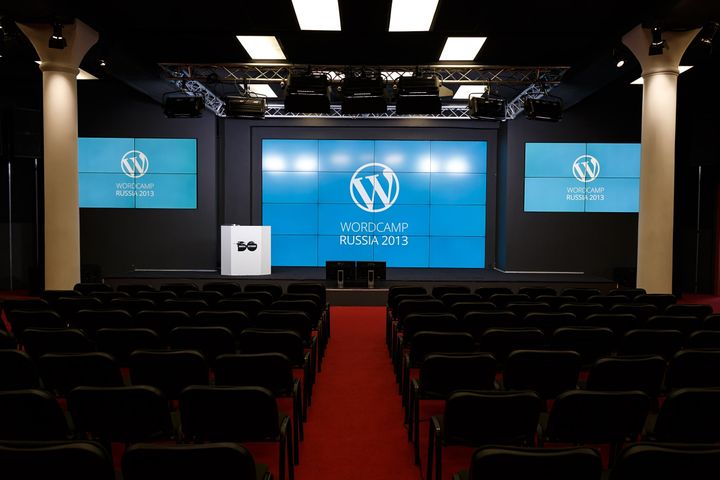
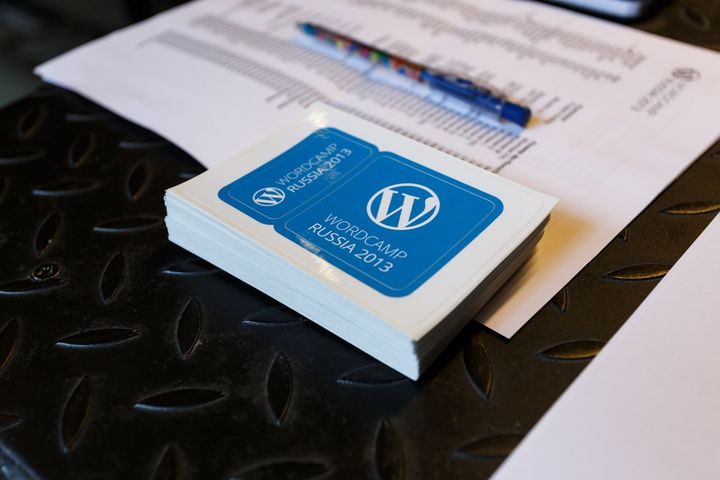
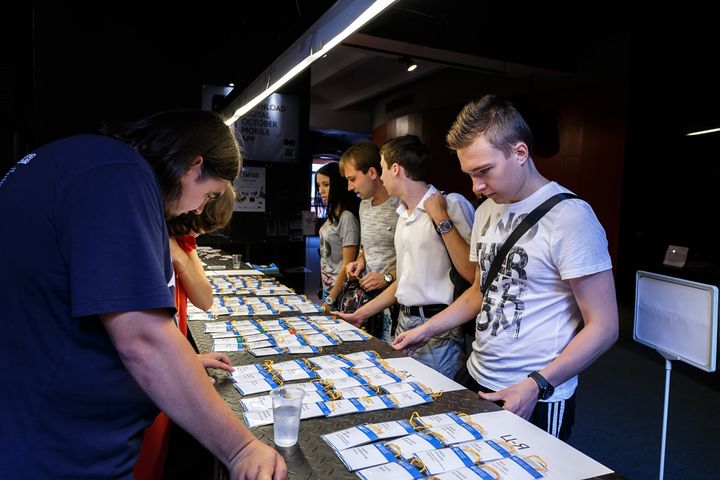
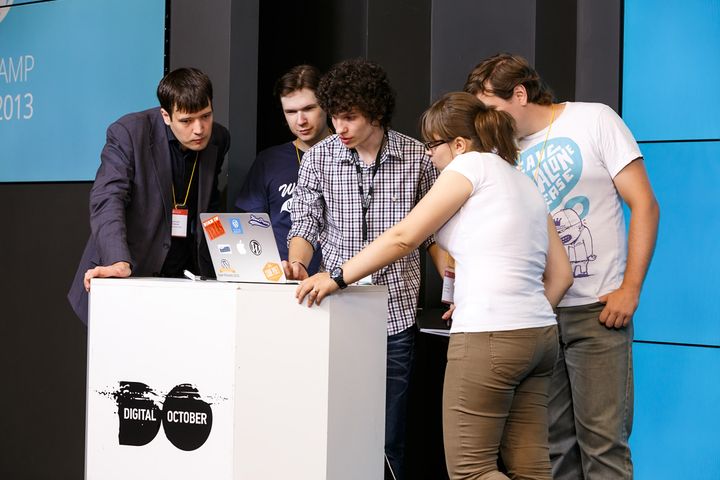
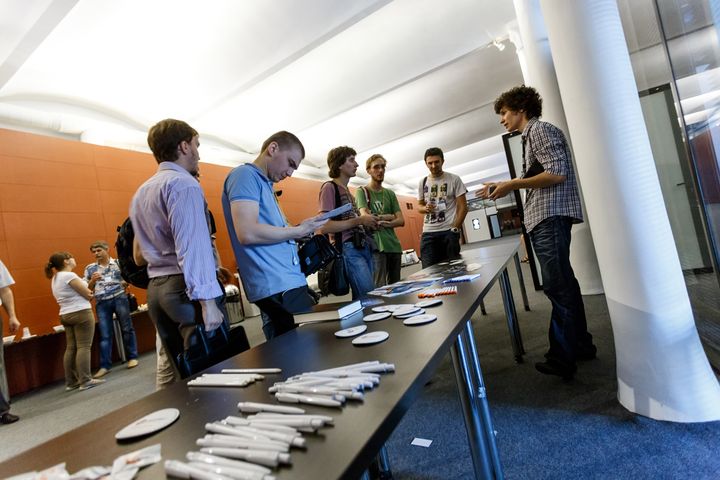
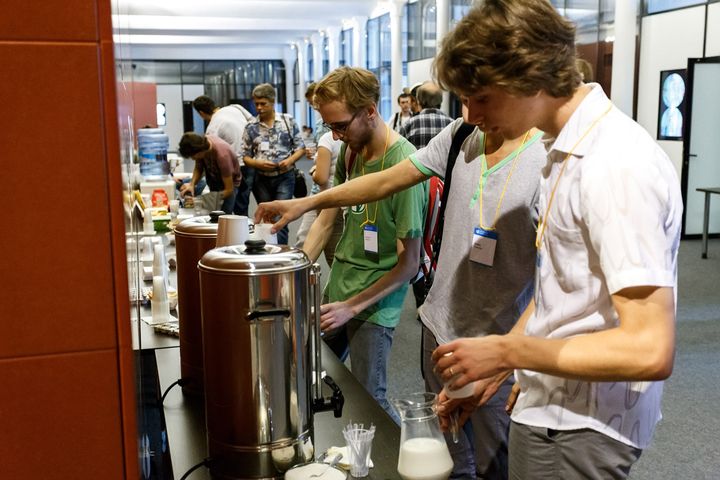
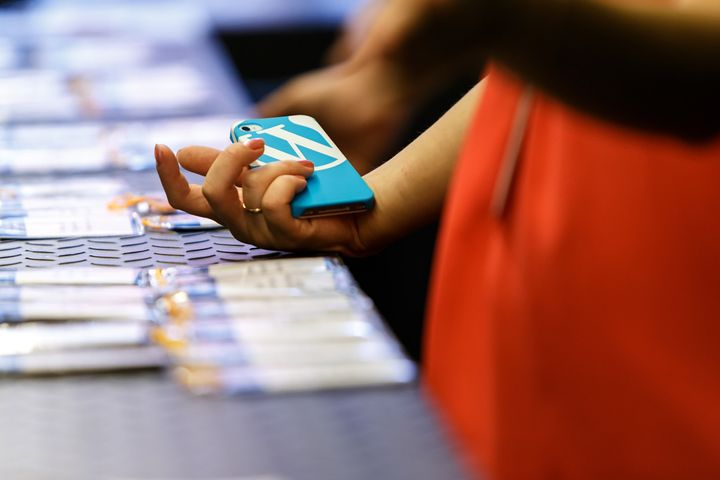
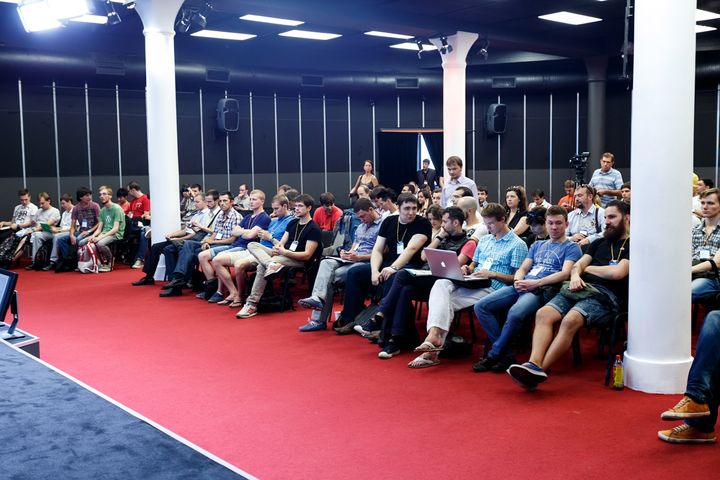
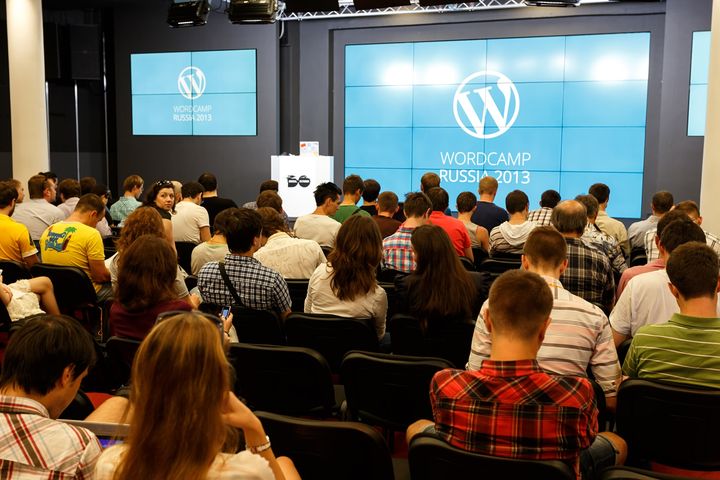
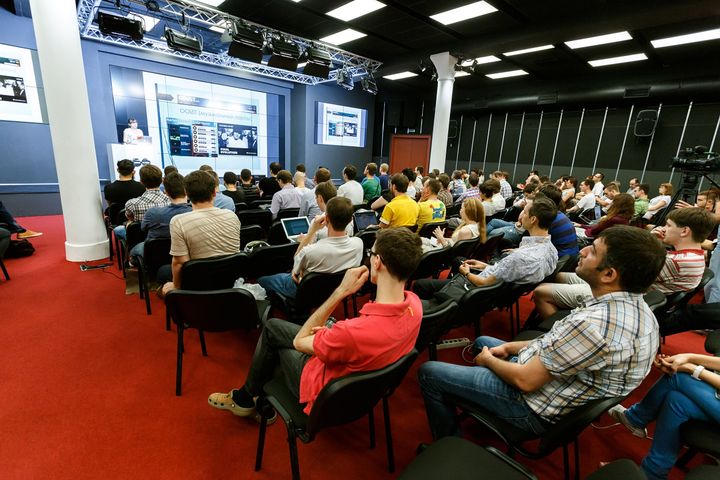

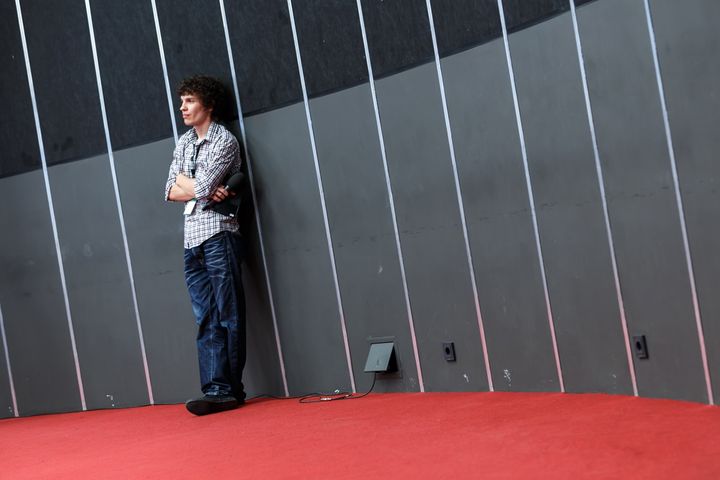
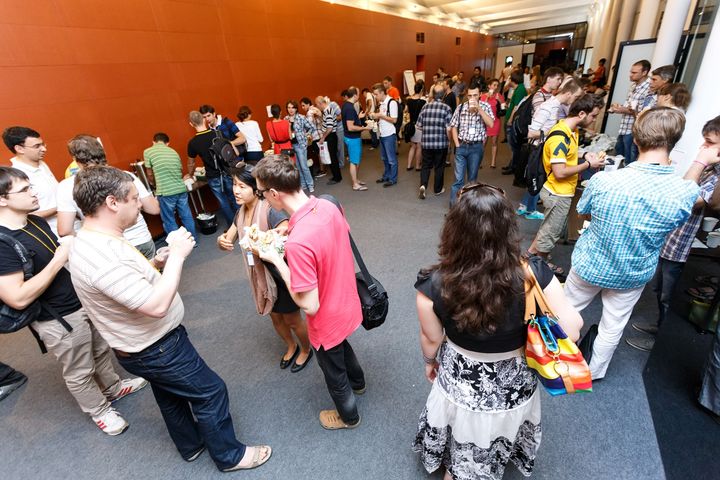
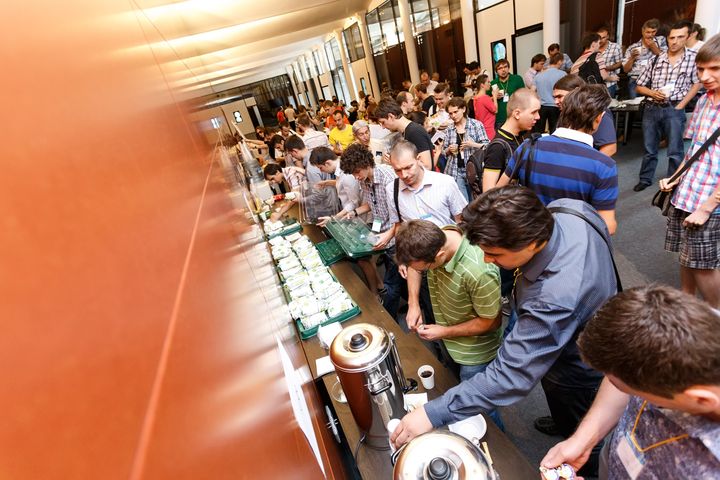
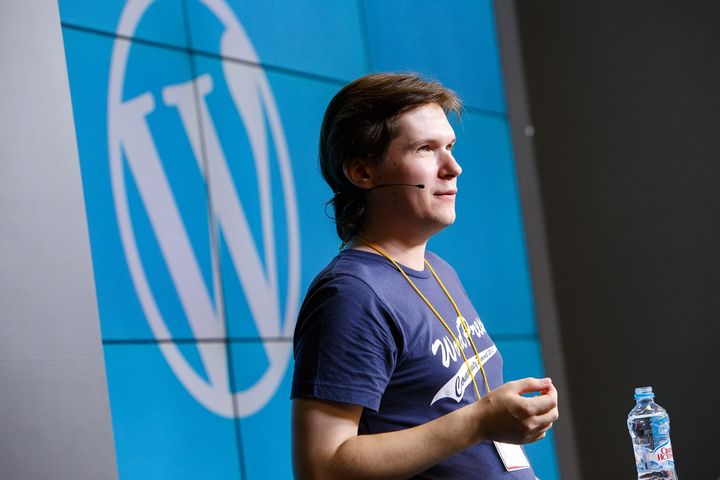
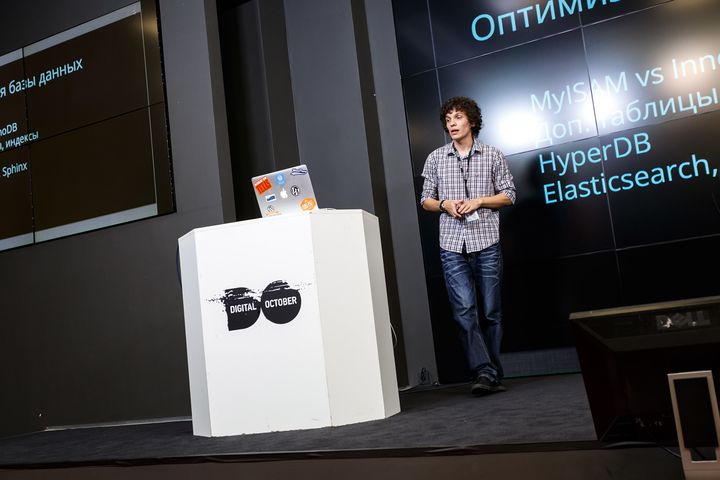
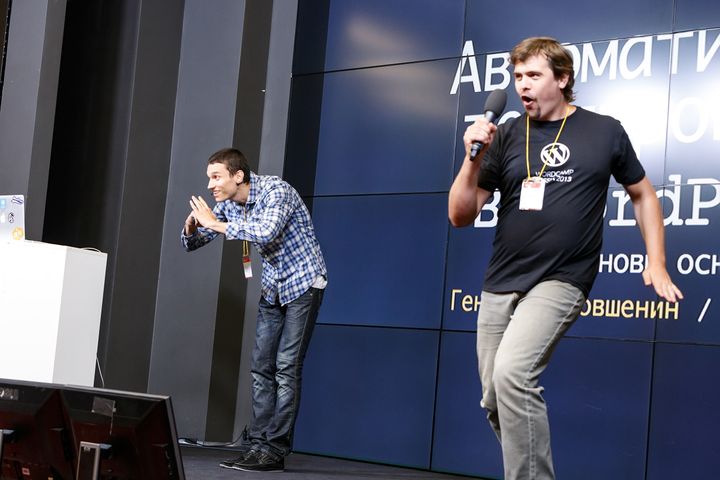
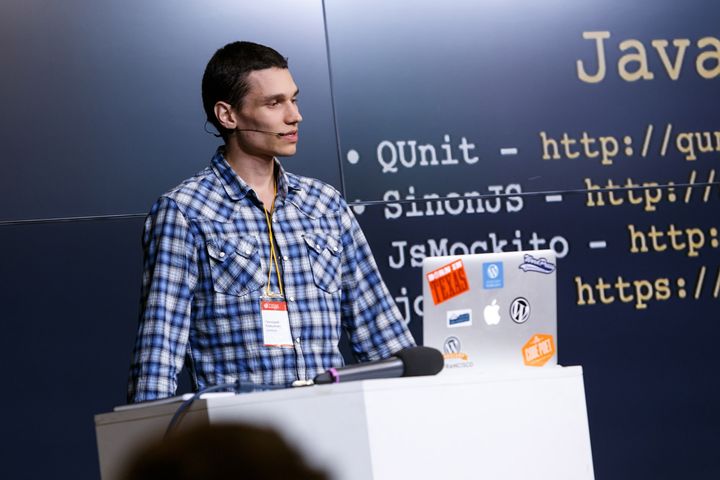
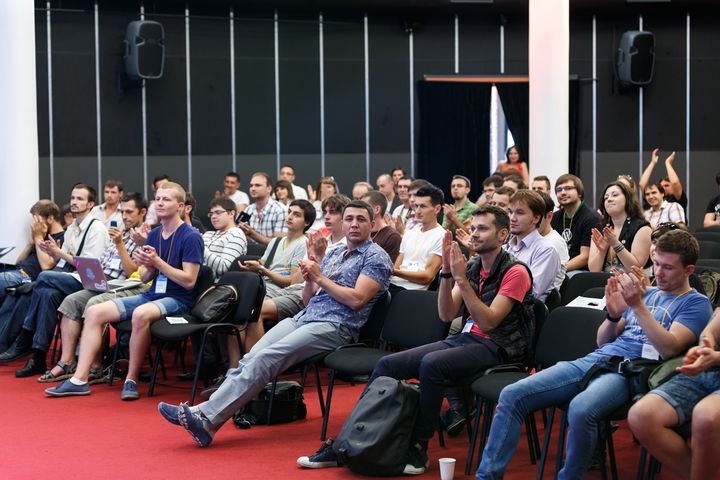
While I would love to attend, as an LGBT youth, I would feel unsafe with the government’s current discriminatory stance.
Thanks for your comment Christopher. I don’t know much about that stance, or any other stance for that matter, but you might have a point, which is sad. You can still catch the videos on WordPress.tv though!